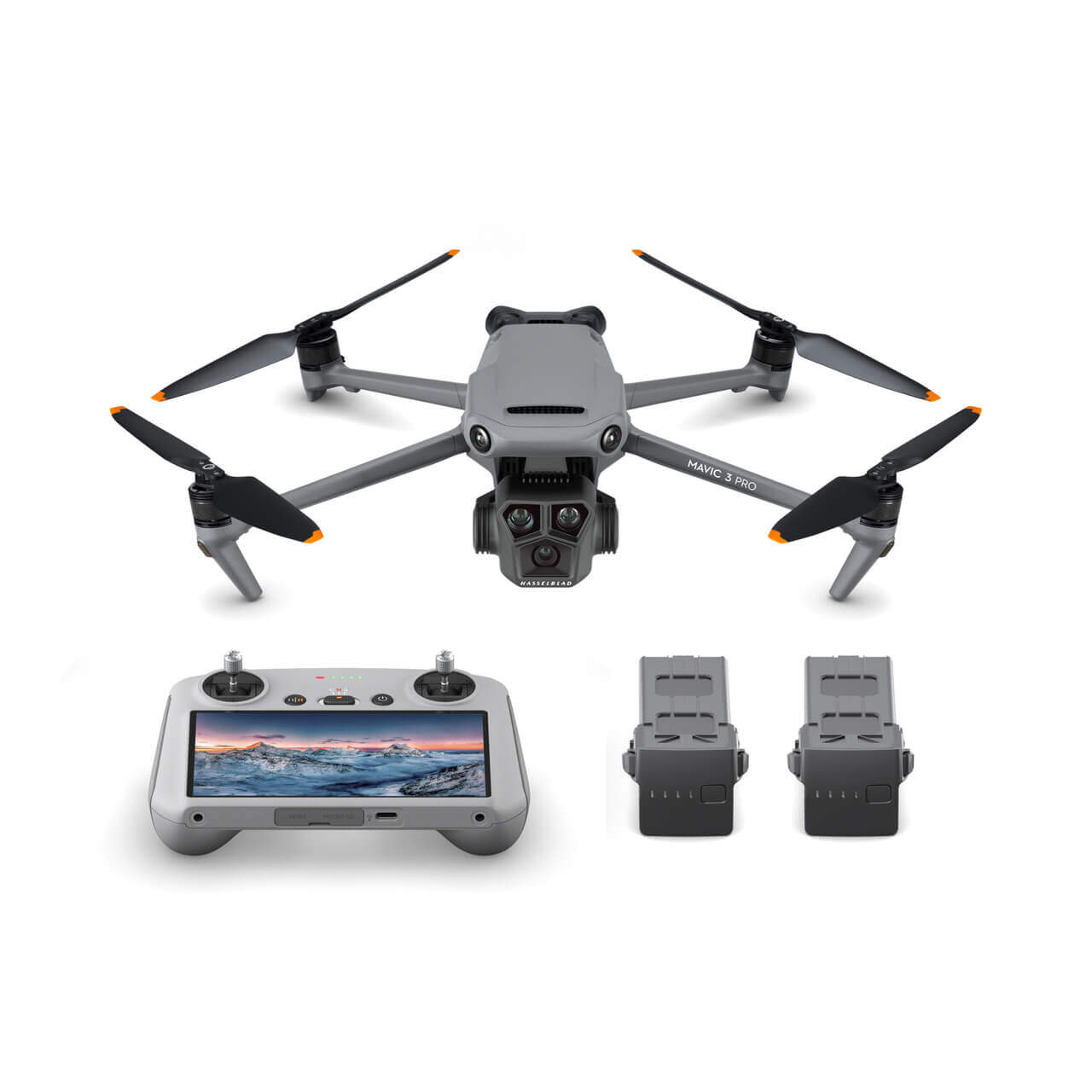The rapid growth in the quadcopter industry is evident through the exponential expansion of technological capabilities and the diverse range of applications. As advancements continue to redefine the capabilities of these aerial devices, the quadcopter industry has become a dynamic and influential sector, contributing significantly to various fields.
Applications of Professional Quadcopters
A. Aerial Photography and Videography
-
High-Quality Imaging Capabilities
- Breaking Down Megapixels: Aerial Cameras at their Finest
- Unraveling the Magic of High-Resolution Shots
-
Creative Possibilities for Photographers and Filmmakers
- Beyond the Horizon: Exploring Unseen Perspectives
- Elevating Storytelling: Aerial Cinematography Unleashed
B. Surveillance and Security: Eyes in the Sky
A. Role in Monitoring Large Areas – The Sky’s Watchtower: Aerial Surveillance’s Vast Reach – Real-Time Monitoring: Aerial Solutions in Action
B. Enhancing Security Measures – Beyond Fences: Aerial Security’s Comprehensive Approach – Navigating Challenges: Aerial Solutions in Diverse Terrains
Industrial Inspections
A. Importance in Inspecting Hard-to-Reach Areas
Quadcopters are employed in industrial inspections to reach inaccessible or hazardous areas, reducing risks to human workers.
B. Benefits in the Energy Sector
Inspecting Power Lines:
Quadcopters are deployed for the inspection of power lines, providing a safer and more efficient alternative to traditional methods. They can navigate along power lines, identifying potential faults, damages, or areas in need of maintenance. This not only enhances the reliability of power distribution but also minimizes downtime and the need for manual inspections in challenging terrains.
Monitoring Wind Turbines:
Professional quadcopters contribute significantly to the monitoring and maintenance of wind turbines. Their agility allows them to access elevated areas with ease, conducting inspections of turbine blades and components. By identifying issues early on, quadcopters help optimize the performance of wind farms, ensuring sustained energy production.
Search and Rescue Operations
Quadcopters in Emergency Situations
The Sky’s Lifesavers: Quadcopters as Emergency Response Heroes B. Unleashing Aerial Technology for Swift and Efficient Rescue Missions
The Crucial Role of Quadcopters in Search and Rescue
- Navigating Challenges: Improved Efficiency in Locating Missing Persons
- Rapid Deployment: Quadcopters as First Responders
- Precision in Action: Real-Time Surveillance for Enhanced Search
- Eyes in the Dark: Advanced Imaging Technologies
- Thermal Imaging: Spotlighting Heat Signatures in Emergency Scenarios
- Night Vision Capabilities: Extending Search Operations Beyond Daylight
Traditional Challenges in Search Operations
-
The Race Against Time
- Time Sensitivity: Every Moment Counts
- Limitations of Conventional Search Methods
-
Terrain and Environmental Factors
- Nature’s Obstacles: Mountains, Forests, and Urban Labyrinths
- Weather Impacts: Searching Through Rain, Fog, and Darkness
Agricultural Applications
A. Precision Farming with Quadcopters
1. Monitoring Crop Health
Quadcopters facilitate precision farming by monitoring crop health, detecting diseases, and optimizing irrigation.
2. Optimizing Agricultural Practices
Farmers leverage quadcopters to optimize agricultural practices, leading to increased efficiency and reduced environmental impact.
Technological Advancements
A. Evolution of Quadcopter Technology
The technology behind quadcopters continues to evolve, with improvements in flight stability, battery life, and communication systems.
B. Integration of Artificial Intelligence
Artificial intelligence is increasingly integrated into quadcopters, enabling autonomous flight, obstacle avoidance, and smart decision-making.
Key Features of Professional Quadcopters
A. Durability and Robust Design
Professional quadcopters are designed to withstand challenging environments, ensuring durability and reliability in various conditions.
B. Advanced Camera Systems
Equipped with advanced camera systems, quadcopters capture high-quality images and videos, meeting the demands of professional photographers and filmmakers.
C. Long Battery Life and Range
Extended battery life and impressive range enable quadcopters to cover large areas and undertake prolonged missions without frequent recharging.
Regulatory Landscape
A. Overview of Drone Regulations
Understanding and adhering to drone regulations are crucial for responsible quadcopter usage, ensuring compliance with aviation authorities.
B. Ensuring Responsible Quadcopter Usage
Educating users about responsible quadcopter usage helps mitigate safety risks and address privacy concerns associated with drone technology.
Challenges in the Quadcopter Industry
A. Privacy Concerns
The widespread use of quadcopters raises concerns about privacy, leading to ongoing debates and the need for clear regulations.
B. Airspace Management
Efficient airspace management is a challenge as the number of quadcopter users increases, necessitating robust regulatory frameworks.
Future Trends in Professional Quadcopters
A. Continued Technological Innovations
Ongoing research and development will lead to further technological innovations, enhancing the capabilities and applications of professional quadcopters.
B. Expansion of Applications
As industries recognize the benefits of quadcopter technology, the range of applications is expected to expand, contributing to their widespread adoption.
Tips for Choosing the Right Professional Quadcopter
A. Identifying Specific Use Cases
Users should identify specific use cases to determine the features and capabilities required for their professional quadcopter.
B. Considering Technical Specifications
Technical specifications, such as camera resolution, flight time, and range, should be carefully considered when selecting a professional quadcopter.
Quadcopter Maintenance and Care
A. Cleaning and Inspection
Regular cleaning and inspection ensure the proper functioning of quadcopters, preventing issues that may arise from dirt or damage.
B. Software Updates and Calibration
Frequent software updates and calibration are essential for maintaining optimal performance and addressing any bugs or glitches.
User Experiences with Professional Quadcopters
A. Testimonials from Industry Professionals
Industry professionals share their experiences, highlighting the impact of quadcopters in their respective fields.
B. Real-Life Success Stories
Real-life success stories showcase the practical applications and positive outcomes of integrating professional quadcopters into various industries.
Conclusion
A. Recap of Quadcopter Applications
From aerial photography to industrial inspections, the applications of professional quadcopters are diverse and impactful.
B. The Future of Professional Quadcopters
The future holds exciting possibilities as quadcopter technology continues to evolve, opening new avenues for exploration and innovation.
Frequently Asked Questions (FAQs)
A. How do professional quadcopters differ from consumer drones?
Professional quadcopters are designed for specific industrial applications, featuring advanced capabilities and durability that surpass consumer drones.
B. Are there any legal restrictions on flying professional quadcopters?
Yes, drone regulations vary by country, and users must adhere to specific rules to ensure legal and responsible quadcopter usage.
C. What features should I prioritize when choosing a professional quadcopter?
Consider factors such as camera quality, flight time, range, and durability based on your specific use case and industry requirements.
D. How can quadcopters benefit industries like agriculture and energy?
Quadcopters contribute to precision farming, industrial inspections, and monitoring in agriculture and energy sectors, improving efficiency and reducing costs.







